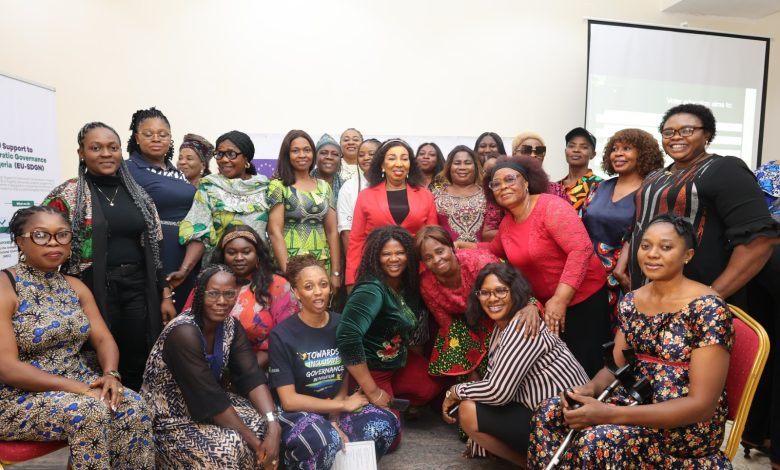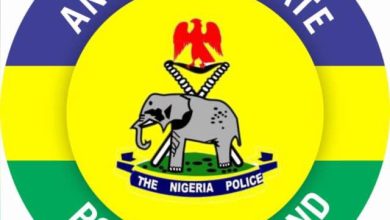
By Our Correspondent
Problems being encountered by voters during elections in Nigeria came to the front burner at a training workshop in Awka on Thursday, with emphasis centering on ways of giving proper voter education to women voters.
The training, which was organized by the Nigeria Women Trust Fund, was funded by the European Union, EU. Participants were drawn from the Independent National Electoral Commission, INEC, and Civil Society Organizations, CSOs,
The Programme Officer of the Nigeria Women Trust Fund, Malliya Manu, said the training is aimed at getting women to participate effectively in the electoral process.
“With the senatorial election coming up on August 16 and governorship on November 8, in Anambra, we want to mobilize grassroot women, CSOs and faith- based organizations that would step down voter education to more women at the rural communities so that they will come out in their numbers during the elections.
“Each of the women trained by us will further step it down by training 50 more women in their areas to get a good reach across the state. It’s also aimed at curbing voter apathy often witnessed in the country.
“In selecting the participants, we worked directly with INEC and Social and Integral Development Center, SIDEC, which is a local CSO in Anambra State.
According to Manu, INEC provided 20 women, while SIDEC provided 10 for the training, adding that the participants are influential women who have interest in the nation’s electoral process.
One of the resource persons, Venezia Gregory, said that essentially, the objective of the training was to familiarize the participants with voter education and its role in the electoral process
Additionally, the aim is to provide participants with the necessary knowledge to conduct Voter Education Forums at the local levels.
The training identified problems associated with voting which include double registration, difficulties related to transportation, resource limitations, limited number of resource persons required to carry out voter education, among others.
She said: “Voter and civic education is crucial for ensuring that all voters, regardless of gender, understand their rights. obligations and the political system. It is important that voters are well-informed about the issues they are voting on and know how and where to cast their ballots in every election.
” For an election to be successful and democratic, voters must be aware of their rights and responsibilities, have the knowledge to vote legally. and actively participate in the electoral process.
“In Nigeria, where geopolitical zones and states may face fragility, conflicts of post-conflict situations, and where elections can have a significant impact on citizens and the country’s future, voter and civic education becomes even more essential
“Voter education is also essential to assist election administrations in conducting free, fair, effective, and credible elections. It provides voters with the necessary information to cast their ballots on the designated voting day(s) and increases awareness of the importance of voting.
“By educating voters, citizens develop attitudes, behaviours, and knowledge that strengthen democracy This education helps in organizing and engaging voters in supporting political parties or causes, promoting peaceful elections, accepting election results, and fostering tolerance towards competition and opposition.”
She noted that while education alone cannot sustain democracies, it plays a vital role when citizens are supported by a responsive and democratic state.
According to her, an educated citizenry can even compensate for deficiencies in administrative preparations for an election.
“The focus of voter education is to encourage and prepare voters for active participation in elections. It covers topics such as the connection between fundamental human rights and the right to vote, voters’ roles, responsibilities, and rights, as well as more complex information about voting and the electoral process.
“Voter education should target everyone, including men, women, and persons with disabilities. It should emphasize the right to vote and foster an inclusive electoral process where women and people with disabilities are encouraged to participate in the governance process” Gregory said.




